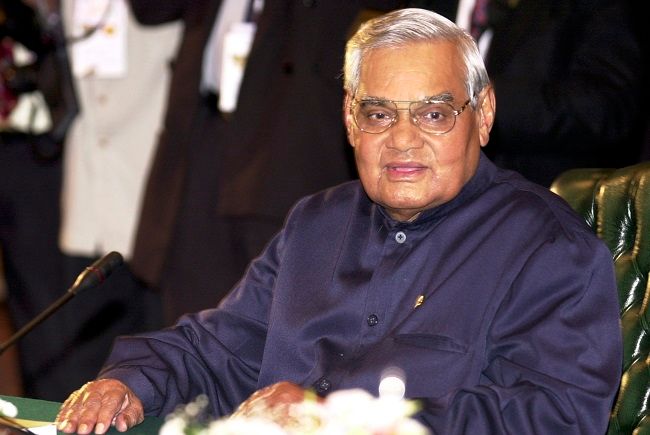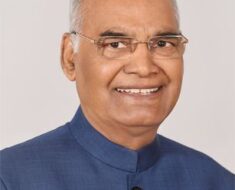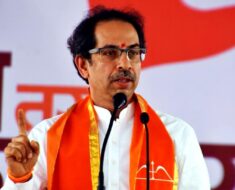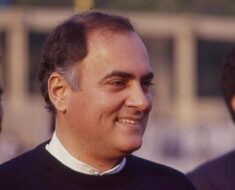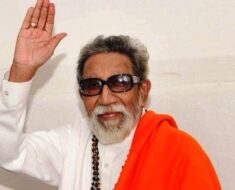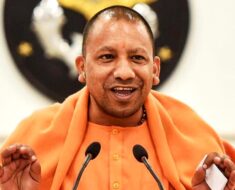Atal Bihari Vajpayee, a towering figure in Indian politics, left an indelible mark on the nation. His legacy extends beyond his three terms as Prime Minister, encompassing his poetic talents and unwavering dedication to public service.
Biography/Wiki
Atal Bihari Vajpayee was born into a Brahmin family on December 25, 1924, in Gwalior, Gwalior State, British India (now Gwalior, Madhya Pradesh). His grandfather, Pandit Shyam Lal Vajpayee, initially resided in Bateshwar, United Province (now Uttar Pradesh), before moving to Morena, Gwalior. His father was a poet and school teacher. Vajpayee’s early political awakening came during the 1942 Quit India Movement, resulting in a 23-day imprisonment by the British.
He volunteered with the Arya Kumar Sabha of Gwalior (the youth wing of Arya Samaj) and joined the Rashtriya Swayamsevak Sangh (RSS) in 1939, significantly influenced by Babasaheb Apte. After undergoing officer training within the RSS, he became a full-time worker in 1947. Following the 1948 ban on the RSS, he transitioned to the newly formed Bharatiya Jana Sangh (BJS).
Rising through the ranks, he served as the National Secretary for the Northern region and closely collaborated with Shyama Prasad Mukherjee. In 1951, Vajpayee undertook a fast unto death in Kashmir, protesting the mistreatment of non-Kashmiri visitors. This period also saw the death of Mukherjee in prison. His exceptional oratory skills impressed even Prime Minister Jawaharlal Nehru, who predicted Vajpayee’s future as Prime Minister.
Following the demise of Pt. Deendayal Upadhyaya in 1968, Vajpayee assumed the leadership of the Jana Sangh, becoming its National President. His political career was marked by strong convictions and eloquent speeches that resonated deeply with the populace.
Family
Vajpayee was born to Krishna Bihari Vajpayee and Urmila Mishra. He had six siblings: three brothers (Prem Bihari, Avadh Bihari, Suda Bihari) and three sisters (Urmila Mishra, Kamala Devi, and Vimala Mishra). He remained unmarried throughout his life, though his relationship with Rajkumari Kaul was often speculated upon in the media (She passed away in May 2014). He adopted Namita Bhattacharya as his daughter.
Career
Academically gifted, Vajpayee received his primary education at Saraswati Shishu Mandir, Gorkhi, Bara, Gwalior. He pursued further education at Gwalior’s Victoria College (now Laxmi Bai College), graduating with distinction in English, Hindi, and Sanskrit. He earned an M.A. in Political Science from DAV College, Kanpur, with first-class honors.
His political journey began in the early 1950s with the Bharatiya Jana Sangh. In 1957, he contested his first general election, unsuccessfully in Mathura but winning in Balrampur. During the 1975-77 Emergency, he was a vocal opponent of Indira Gandhi’s government, leading to his arrest alongside other opposition leaders. The Janata Party’s victory in the 1977 elections saw him serve as the Minister of External Affairs under Morarji Desai.
He became the first president of the Bharatiya Janata Party (BJP) upon its formation in 1980. In 1995, L.K. Advani declared Vajpayee as the BJP’s candidate for Prime Minister. He served as Prime Minister three times: briefly in 1996, then from 1998 to 1999, and finally from 1999 to 2004. His tenure was characterized by significant political and economic reforms.
Controversies
• Arrested during the 1975 Emergency.
• Faced criticism for his role in the 1992 Babri Masjid demolition.
Personal Life and Interests
Vajpayee was known for his love of dogs, Indian folk dances and music, and nature. Manali was a favorite destination. He enjoyed films and music, and was a fan of actress Hema Malini.
Health Issues/Death
He underwent knee replacement surgery in 2001. A stroke in 2009 impacted his health. He passed away on August 16, 2018, at the age of 93 due to age-related illnesses. His cremation took place at the Rashtriya Smriti Sthal near Rajghat, New Delhi.
Awards/Honour
• Padma Vibhushan (1992)
• D. Lit from Kanpur University (1993)
• Bharat Ratna (2015)
• Bangladesh Liberation War Honour (2015)
Facts
Here’s a table summarizing key facts about Atal Bihari Vajpayee:
| Fact | Details |
|---|---|
| Birthdate | Christmas Day, 1924 |
| Early Career | Worked for Deendayal Upadhyaya’s newspapers |
| Education | Studied Law with his father at DAV College, Kanpur; abandoned studies due to partition |
| Ministry of External Affairs | Requested the return of Jawaharlal Nehru’s portrait to the office |
| Lahore Bus Yatra | Made a bus trip to Lahore for peacebuilding in 1999 |
| Parliamentary Career | Elected from four different states |
| Post-retirement | Called “Bhishma Pitamah” of Indian politics |
| Literary Works | Authored numerous books of poems and political analysis |
| Commemoration | A ?100 coin was released in his memory |

